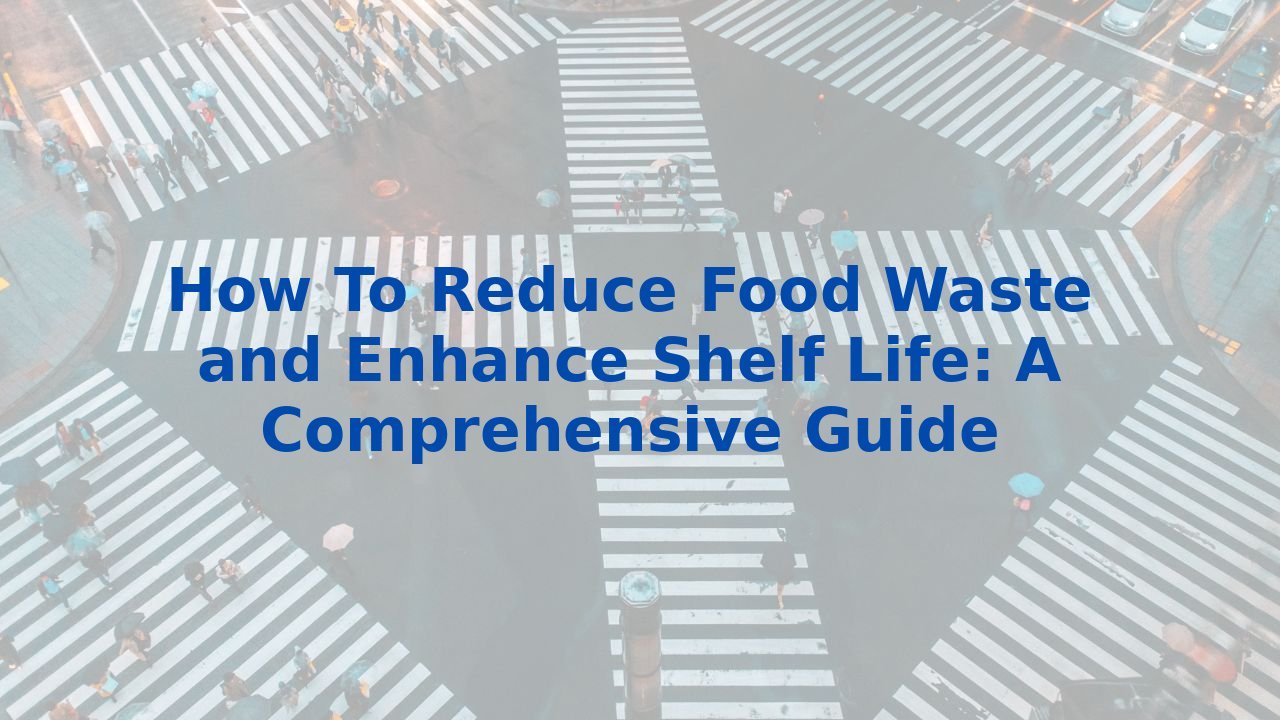How To Reduce Food Waste and Enhance Shelf Life: A Comprehensive Guide
How To Reduce Food Waste and Enhance Shelf Life: A Comprehensive Guide
Introduction
In an age where sustainability is more critical than ever, reducing food waste stands as a vital component of responsible consumption and economic efficiency. Combining traditional methods with modern innovation can significantly enhance shelf life while fostering a culture of sustainability in food businesses. To achieve this, artificial intelligence (AI) emerges as a powerful ally, reshaping processes to minimize waste and extend the durability of products.
Understanding Food Waste
Food waste occurs at various stages—from production to consumption. It not only leads to lost economic value but also contributes to environmental degradation. Addressing these issues calls for a multifaceted approach that combines conscious efforts and technological integration.
Enhancing Shelf Life with AI
AI can revolutionize food management processes, significantly impacting shelf life and waste reduction. Let’s explore how:
1. Predictive Analytics
AI can analyze vast data sets, identifying patterns in customer purchasing behaviors, seasonal trends, and supply cycles. By forecasting demand accurately, businesses can scale production accordingly, ensuring that the right quantities of food items are available while minimizing overproduction. This predictive capability allows companies to make informed decisions that reduce surplus and consequently combat food waste.
2. Smart Inventory Management
AI technologies can track inventory in real time, predicting optimal stock levels and monitoring freshness. Using machine learning algorithms, organizations can set reminders for imminent expiration dates and automate reordering processes. By streamlining these operations, businesses can maintain fresher inventory, thus extending the shelf life of their products and minimizing waste.
3. Packaging Innovations
AI-driven innovations in packaging can significantly enhance shelf life. Smart packaging assesses whether food is still fit for consumption, alerting consumers and businesses alike on the freshness of items. Additionally, gas-flushing techniques powered by AI can slow down spoilage by manipulating the atmosphere inside packaging, ultimately leading to longer-lived goods.
Optimizing Operational Efficiency
Integrating AI into business processes not only reduces waste but also enhances overall operational efficiency. Here’s how:
1. Automating Routine Tasks
AI automates repetitive tasks, allowing staff to concentrate on high-value activities. By streamlining operations such as order management and customer inquiries, organizations can enhance productivity and improve service quality, further reducing waste created by human errors.
2. Real-Time Monitoring
The ability to monitor food products in real time enables businesses to maintain quality control, ensuring that items are always at their best. AI-powered systems can detect discrepancies in temperature or humidity, which are key factors in spoilage, thereby empowering organizations to take proactive measures.
Cultivating a Trained Workforce
For businesses to fully harness the potential of AI, effective employee training is crucial.
1. Empowering Teams
Training employees on AI integration fosters confidence and adaptability, equipping them with skills to work seamlessly alongside new technologies. This collaboration enhances productivity and creativity, resulting in innovative solutions to common industry challenges.
2. Skills for Tomorrow
As AI adoption continues to evolve, understanding how to leverage its capabilities becomes essential. Investing in training ensures your workforce remains relevant, boosting employee satisfaction and retention as they gain valuable, future-oriented skills.
Conclusion
Reducing food waste and enhancing shelf life are achievable goals through the amalgamation of traditional practices and innovative AI solutions. By investing in the right technologies and fostering a skilled workforce, food businesses can lead the charge in sustainability. Not only will this approach drive efficiencies and improve customer satisfaction, but it will also ensure that we contribute positively to our planet’s future.
Are you ready to take the leap into the AI-enhanced future of food management?



